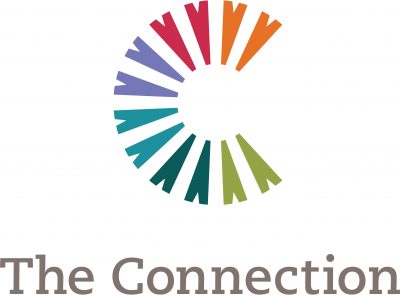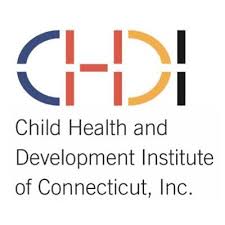Upcoming Projects
We are excited to share projects that are in the works to begin work with CARHD soon. We look forward to these partnerships!
Community Affiliate
Project Information
CARHD Projects
Faculty Affiliate
Community Affiliate
Project Information
Dr. Beth Russell
Child Health and Development Institute of Connecticut (CHDI)
Evaluation of Connecticut’s School-Based Diversion Initiative (Active since: 2022)
This project partners with CT Child Health and Development Institutes to evaluate their Connecticut’s School-Based Diversion Initiative (SBDI). The goals of this project are to 1) build knowledge and skills among teachers, school staff, and school resource officers to recognize and manage behavioral health crises in the school; 2) Link schools to community-based services and supports (particularly Mobile Crisis) to divert youth from arrest; and 3) Reduce the frequency of out-of-school suspensions, expulsions, and discretionary school-based arrests.
Dr. Marlene Schwartz
United States Department of Agriculture NIFA Grant
USDA SCFS Evaluation (Active since: 2021)
Dr. Marlene Schwartz collaborated with CARHD to evaluate a 5-year USDA NIFA funded training program. Through this intensive, hands-on program Sustainable Community Food System (SCFS) Fellows will come to understand social, political, economic, and environmental roadblocks to creating sustainable, equitable, and community-based food systems and have tools to seek innovative and comprehensive solutions.
Dr. Rachel Chazan Cohen
Perigee Fund
Parent Experiences with Technology-Enabled Early Childhood Services (Active since: 2020)
The Perigee Fund is embarking on a one-year national project to systematically capture lessons learned and future implications from the rapid acceleration of technology-enabled early childhood services in response to COVID-19. Dr. Chazan-Cohen leads a study in hopes to hear more from parents who are affected by poverty, racism, and/or trauma in receiving key early childhood and family supports remotely.
Dr. Sandra Chafouleas
Child Health and Development Institute of Connecticut (CHDI)
Evaluation of Behavioral Innovations Due to COVID-19 (Active since: 2020)
The Child Health and Development Institute of Connecticut (CHDI) and the Collaboratory on School and Child Health (CSCH) under the directorship of Dr. Chafouleas collaborated with CARHD to evaluate the behavioral innovations deployed in response to COVID-19 within the K-12 school context. This project used survey and interview methods to identify modifications and innovations to school-based behavioral health services. Information gathered was summarized to provide recommendations about sustaining innovations that show promise in supporting student behavioral needs and reducing and eliminating inequities.
Dr. Caitlin Lombardi
Heidi Maderia

Promoting, supporting and strengthening children’s earliest relationships
prenatal to age six
Assessment of Infant Mental Health Child Care Providers Training Series (Active Since: 2015)
The Connecticut Association for Infant Mental Health collaborated with CARHD to assess a training series for educating infant mental health providers. Providers from the Department of Children and Families, Early Head Start/Head Start programs and community providers participated in a training program and were assessed on knowledge and performance before and after the training. CARHD assisted the CT Association for Infant Mental Health in analyzing the pre- and post-assessments and evaluating the training.
Dr. Kari Adamsons
Diana DiTunno
Connecticut Department of Social Services
Fatherhood Research and Practice Network (FRPN) (Active Since: 2019)
The purpose of the FRPN is to enhance father inclusion, with an emphasis on nonresidential fathers, in state programs and policies dealing with children and families. The aim is to conduct planning activities aimed at improving father involvement and generating more reliable funding for community-based fatherhood programs.
Dr. Beth Russell
Tammy Freeberg
The Village for Families and Children
Aspire, Connect, Thrive (ACT) (Active Since: 2016)
The goals of the ACT program are to increase students’ social-emotional competence, improve relationships for children, reduce trauma symptoms, increase teachers’ understanding of the impact of trauma on the classroom, and promote a healthier lifestyle for children. The CARHD team is charged with evaluation of the program, administration of trauma assessments, completion of qualitative teacher interviews, and mentoring of undergraduate interns assisting with program activities during and after school.
Dr. Rachel Tambling
Tammy Freeberg
The Village for Families and Children
United Way
ACEing the EITC project (Active Since: 2021)
In partnership between United Way and The Village for Families and Children, this project evaluates outcomes from the VITA free tax preparation program. This evaluation work examines patterns of VITA service utilization, and provides insight into family stressors and ACEs.
Dr. Preston Britner
Debra Struzinski
The Connection Inc.

Supportive Housing for Families (Active Since: 2006)
Safe, stable housing is critical to family safety, permanency, and well-being. The CT Department of Children and Families (DCF) has partnered with The Connection, Inc to design and deliver supportive housing services for families involved in child welfare. Britner and colleagues have evaluated the program and led dissemination and sustainability activities since 2000. In 2012, the U.S. Administration for Children and Families funded supportive housing demonstrations for child welfare-involved families as an opportunity to test the concept through a 5-year randomized study. In Connecticut, the demonstration leveraged the longstanding statewide Supportive Housing for Families (SHF) program, solidified emergent practices, synergized cross-systems partnerships, and produced significant experimental evidence for the efficacy of the intervention.
Dr. Beth Russell
Betsy Leborious
CREC
Shelby Pons
Connecticut State Department of Education
21st Century After-School Program Evaluation (Active since: 2008)
Afterschool programs are designed to positively impact a variety of student outcomes, including academic performance, social skills, and behavioral problems. The Afterschool Program Evaluation Project examines federally and state-funded afterschool programs in the state of Connecticut. The Center staff consult with the State Department of Education, and the Capitol Region Education Council (CREC) to evaluate and assess changes in student outcomes among student’s attending afterschool programs funded through Connecticut State Department of Education funding and the 21st Century Community Learning Centers national initiative.
Dr. Rachel Chazan Cohen
Diane Gozemba
EASTCONN
Early Head Start (Active Since: 2010)
EASTCONN’s partnership with UConn involves a holistic method of gathering information from a family functioning framework that integrates assessments, goal setting data, and family/staff feedback to enhance programming and family growth. Assessments and goal setting inform service needs while feedback forms provide information about staff/family experiences. Reports generated from these methods inform managers’ decision making on program improvement, staff training, and other areas of need and strength.
Dr. Beth Russell
Candida Flores
Family Life Education
Family Life Education (Active Since: 2018)
Family Life Education is collaborating with CARHD around building capacity, identifying goals, selecting measures, and developing an evaluation to be used agency-wide.
Dr. Beth Russell
Tammy Freeberg
The Village for Families and Children
Vernon Prevention Program: Vernon ROCKS (Active Since: 2016)
The Vernon ROCKS program is an prevention effort aimed at improving protective factors and decreasing risk factors for youth substance abuse. The Village for Families and Children collaborated with CARHD in writing a grant proposal for the Vernon Prevention Program intervention, as well as, developing aspects of evaluation efforts for the program. CARHD also assisted with data collection consultation and sharing knowledge on common barriers to data collection and how to overcome them.
Dr. Ron Sabatelli
Office of Policy and Management
Criminal Justice Policy and Planning Division
Crossover Youth (Active Since: 2010)
The first phase of this project aimed to describe the crossover youth (COY) population in Connecticut: their demographics, child welfare involvement, and juvenile justice involvement. Center researchers identified factors among child welfare-involved youth that predict later involvement in the juvenile justice system. Data was matched and de-identified by Connecticut’s Department of Children and Families (DCF), the Child Protection (CP) division of the Superior Court for Juvenile Matters, and the Court Support Services Division (CSSD) of the Juvenile Branch.The second phase of this project aims to gain a broader understanding of the experiences and outcomes of crossover youth by re-matching data from DCF, CP, and CSSD, as well as adding data from the Connecticut State Department of Education (SDE) and the Homeless Management Information System (HMIS). Currently Phase II is in the matching stage but areas of future research interest are related to developing patterns that utilize education and homelessness data to see if more nuanced trajectories are identified and whether there are points of identification for family intervention before youth and family involvement in either the child welfare or juvenile justice systems.
Dr. Kari Adamsons
Joseph DiTunno
Family Relations Deputy Director
State of Connecticut Judicial Branch
Parenting Apart Parenting Education Program (Active Since: 2017)
The Parenting Apart Education Program is a six hour training session required by the CT family court system for all divorcing parents. It covers how to buffer the impact of divorce on children, as well as techniques for keeping communication child-focused and positive after separation occurs. CARHD helps to facilitate the training classes for parents as well as collects data.
Dr. Ron Sabatelli
Office of Policy and Management
Criminal Justice Policy and Planning Division
Second Chance (Active Since: 2010)
CARHD is assisting the Second Chance program in effective implementation and evaluation efforts. The aim of the Second Chance program is to create a program in which agencies and officials that work in corrections fields collaborate and communicate with one another, in order to develop strategies to identify, supervise, and treat the needs of high-risk juvenile offenders when they enter back into the community. The program involves identifying evidence-based strategies for both supervision and treatment, but also effective community delivery of these practices.
Dr. Preston Britner
Meridan Choice Neighborhoods (Active From: 2014-2016)
Families in the child welfare system often face poor housing conditions, housing instability, or frank homelessness. These housing concerns not only contribute to neglect, the most common reason for child protection referral, but also complicate attempts to reunify families when children are placed in foster care. The Intensive Supportive Housing for Families (ISHF) is a demonstration project administered through the CT Department of Children and Families (DCF), funded through a five-year grant from the federal Administration for Children and Families, aims to increase stability and positive outcomes for families who are at risk for separation or reunification. Intensive case management services are provided to these families via The Connection, Inc. Center faculty and staff provide program evaluation and lead dissemination and sustainability activities in programs where housing is a platform for family intervention.
Dr. Beth Russell
Cathleen Love
University of Connecticut
People Empowering People (Active Since: 2010)
The UConn People Empowering People (PEP) program is a personal and family development program with a strong community focus. The aim of the UConn PEP program is to help participants build a stronger community for themselves and their children. Developed by UConn’s Cooperative Extension department, the 10 week PEP program includes workshop sessions and community projects. In collaboration with Dr. Cathy Love, the Center staff assess the effectiveness of the programs, including the impact of training on the three levels of social functioning (individual, relationship, and community).
Dr. JoAnn Robinson
Brian Samuels
Chapin Hall
Connecticut Infant Mental Health (Active Since: 2010)
Dr. JoAnn Robinson
Chapin Hall (Active Since: 2010)
Dr. Erik Hines
Anne Farrell
Left UConn in 2016
Bruce Dixon
Connecticut Pre-Engineering Program (Active from: 2015-2016)
The aim of the Connecticut Pre-Engineering Program (CPEP) was to inspire and expose under-represented students to engineering professions. The goal was to stimulate interest and provide experiences that could create a desire in some Connecticut students to pursue careers in engineering-related careers. CPEP is a similar effort to other nationwide approaches to improving student interest in Science, Technology, Engineering, and Math (STEM) fields. CPEP specifically targeted female African-American and Hispanic students, in hopes to increase diversity in Connecticut engineers.
Dr. JoAnn Robinson
Macquarie University Analysis (Active From: 2014-2015)
Dr. Beth Russell
Kimberly Martini-Carvell
The Village for Families and Children
Zero to Three Program (Active From: 2014-2015)
This short-term CARHD – Village collaboration focused of disseminating results from The Village’s Mid-Level Developmental Assessment initiative. The project’s aim was to identify appropriate goals, research questions, and the data and analysis by which to test them that would be suitable for presentation at the annual Zero to Three national meetings. CARHD held the leadership role in developing and submitting conference proposals and acted as co-author in the resulting presentation.
Anne Farrell
Left UConn in 2016
Dr. Ron Sabatelli
Office of Policy and Management
Criminal Justice Policy and Planning Division
School Attendance Model Kindergarten Program (Active from: 2014-2017)
CARHD has been contracted by the State of Connecticut Office of Policy and Management in conjunction with the Criminal Justice Policy and Planning Division to develop and evaluate a model designed to improve kindergarten attendance. The model requires that outreach workers be designated to work specifically with kindergarteners in schools throughout Connecticut to support their school attendance. Participating schools are expected to monitor the attendance of all kindergarten students. The outreach worker will contact kindergarten students identified early on as being, or at risk of becoming, chronically absent. Another level of intervention addresses students who experience a period of chronic absenteeism, and involves home visits and connecting families with needed community resources.
The Center is assisting eleven school districts implement the model and manage data collection. The Center provides training to outreach workers, manages a central database, conducts data analyses, and provides reports summarizing the evaluation results.
Anne Farrell
Left UConn in 2016
Betsy Leborious
CREC
Shelby Pons
State Department of Education
Positive Behavior in Out Of School Time (Active from: 2013-2016)
CARHD research associates worked to embed Positive Behavior Interventions & Supports (PBIS) in participating 21st Century Community Learning Centers (afterschool programs) in Connecticut. The P-BOOST team oriented program leadership staff to PBIS, provided professional development to after school professionals who work directly with children and youth, and developed and disseminated curriculum materials support PBIS knowledge, competencies, and implementation. The current demonstration project incorporates three levels of implementation support, including (a) regular fidelity reviews, (b) performance feedback to staff, and (c) coaching related to program-level and staff-level change. Implementation is assessed through adapted PBIS measures (i.e., School-wide Evaluation Tool, Benchmarks of Quality) and a developed staff-level measure, Measure of Active Supervision and Interaction (MASI). Current work includes evaluation of the demonstration project, preparation of reports and publications, and development for subsequent project iterations. P-BOOST is supported by Connecticut State Department of Education and Capital Region Education Council (CREC).
Dr. Ron Sabatelli
Office of Policy and Management
Connecticut Fitness and Nutrition Clubs In Motion (Active from: 2014-2017)
The Connecticut Fitness and Nutrition Clubs In Motion (CT FAN IM) is an intervention within the Connecticut 4-H after-school programs. CT FAN IM aimed to reduce obesity rates in children ages 7-14. The intervention provided children with physical activity, healthy food demonstrations, and community gardening experiences for 6 weeks. CARHD provided resources and assistance in evaluating the results of the intervention.
Dr. Beth Russell
Kimberly Martini-Carvell
The Village for Families and Children
Mid-Level Developmental Assessment Program (Active From: 2013-2015)
CARHD support for this Village project involved the collaborative supervision of multiple HDFS graduate students as Developmental Specialists at The Village outpatient settings. Students were trained in the play-based mid-level assessment, case management and referral processes, and contributed to MDLA team meetings led by The Village clinical staff.
Anne Farrell
Left UConn in 2016
Betsy Leborious
CREC
Shelby Pons
State Department of Education
Positive Behavior Supports (PBS) in 21st Century After School Programs (2010 – 2016)
CARHD research associate Dr. Anne Farrell and colleagues are working with the Connecticut State Department of Education and Capital Region Education Council (CREC) to conduct a feasibility and demonstration project on positive behavior interventions and supports (PBIS) in 21st Century After School Programs. The project includes: preparation of an evidence brief on PBS in after school settings (completed); development, refinement, and assessment of the feasibility, reliability, and validity of an evaluation tool to examine fidelity and quality of PBIS components in afterschool settings (in development); development and production of a DVD introduction to positive cultures in afterschool programs (nearing completion); training, technical assistance, and consultation with State personnel and providers; and preparation of reports and recommendations for future work in this area (ongoing).
Dr. JoAnn Robinson
Denise Gozemba
EASTCONN
Evaluation of the Scaffolding Early Learning Professional Development Program (2011-2014)
Through funding from the Connecticut State Department of Education (SDE), EASTCONN has sponsored CARHD Research Associate Dr. JoAnn Robinson and a team of graduate students to conduct a process and outcome evaluation of the Scaffolding Early Learning professional development program. The evaluation examines the impact of training and coaching to promote teachers’ support of children’s executive functioning, social skills, language, literacy, and mathematics skills. Specifically, teachers’ classroom practices and instructional methodologies, as well as children’s learning outcomes, are assessed. Data are drawn from classroom observations, teacher interviews, observations of fidelity of implementation, and direct child assessments.
Dr. Beth Russell
University Cooperative Extension
Evaluation of Tools for Healthy Living (Active From: 2012-2014)
Dr. Beth Russell is the Project Evaluator for the Children Youth & Families At Risk (CYFAR) funded Tools for Healthy Living project. Her responsibilities include designing the research methods used in the evaluation, completing all data analysis, and collaboration on the anticipated publications that result. This project was a 5 year longitudinal cohort design that targeted elementary school students’ knowledge of self-care practices. The project was administered through the University’s Cooperative Extension department as part of their Urban 4H after school programming, and enrolled 4th -6th graders in high-risk urban elementary schools in the Hartford and New Britian, CT communities.
Danielle Annett
Left UConn in 2018
Norwalk ACTS (Active From: 2016-2017 )
Norwalk ACTS is a collaborative among many organizations aimed at improving the lives of local children. Norwalk ACTS partnered the CARHD for evaluation assistance.
Stephen Anderson
Left UConn in 2012
Teen Talk Program (Active From: 2011-2014)
This project was a collaboration between Connecticut’s Department of Public Health, Planned Parenthood of Southern New England, and the CARHD to evaluate the Teen Talk program, part of the Personal Respsonsibility Education Program grant. During this multi-year project, Center staff: consulted on an evaluation plan and the development of Institutional Review Board materials; obtained and assessed relevant literature on similar programs; developed and trained front line staff in data collection methods; conducted focus groups with program participants; and analyzed data collected from all sources.
Dr. Ron Sabatelli
Office of Policy and Management
Criminal Justice Policy and Planning Division
Evaluation of Programs to Reduce Juvenile Arrests in Connecticut Schools (Active From: 2010-2014)
Connecticut’s Office of Policy and Management sponsored this work, which provided funding for a small number of programs to develop innovative best practices strategies designed to reduce the number of juvenile arrests originating in Connecticut’s schools. The intent of the project was to support schools in their efforts to reduce school-based arrests, which are a common entry point of youth into the juvenile justice system. CARHD staff provided technical assistance to staff at participating schools in planning and implementing program evaluation plans (e.g., defining the evaluation design, identifying target populations, selecting members of youth participants, identifying existing data and new data that will be required to assess program outcomes) and guidance in developing strategies for collecting and systematically recording outcome data. In addition, the Center analyzed the data collected by programs and prepared written reports summarizing the results.
Stephen Anderson
Left UConn in 2012
Evaluation of Police and Youth Programs (Active From: 2011-2014)
The Center was contracted by the State of Connecticut Office of Policy and Management to conduct an evaluation of Police and Youth Programs. The goals of the Police and Youth Programs were to promote positive youth development and to increase the numbers of police officers who are experienced and comfortable working and interacting with youth in non-enforcement activities. The purpose of the evaluation was to assess the results of the program for participating youth and police officers, particularly changes in each group’s attitudes toward the other. Both police and youth participants were administered pre-tests and post-tests for each year of programming. A total of twenty-two unique communities in Connecticut participated in the program across three years.
Dr. Ron Sabatelli
Office of Policy and Management
Evaluation of the “Effective Police Interactions with Youth” Training Curriculum (Active since: 2006)
Earlier studies of the juvenile justice system in Connecticut determined that Black and Hispanic juveniles were overrepresented in the juvenile justice system. To address this disparity, a training program was designed by OPM’s Policy and Planning Division to provide patrol officers throughout Connecticut with training in handling juveniles at the earliest point in the interaction between police and juveniles, before written incident reports or referrals to court are completed. The evaluation contrasts participants in the training with a randomly selected group of patrol officers who did not receive the training on their knowledge of youth development, positive strategies for interacting with youth, and attitudes toward disproportionate minority representation of youth in the juvenile justice system. Both groups were administered pre-test, post-test, and three-month follow-up surveys.
Dr. Jessica Koslouski
Early Childhood Center at Central Ave
Professional Development in Trauma-Informed Teaching Practices
The Early Childhood Center at Central Ave in Naugatuck, CT and Drs. Koslouski and Chafouleas are partnering to provide school staff with professional development to become a trauma-informed school community. This project includes didactic training as well as ongoing coaching and consultation to support educators in implementing trauma-informed practices. The collaboration is focused on building upon staff understandings of the impact of trauma on young children; proactive teaching strategies for meeting the learning, social, emotional, and behavioral needs of children experiencing trauma; and secondary traumatic stress and educator self-care. This professional development collaboration situates trauma in a socioecological context to promote equity, empathy, and a broader understanding of the systemic forces that contribute to child, family, and community experiences of trauma.
Dr. Nathanael Okpych
College Enrollment and Completion Outcomes for Older Youth in Foster Care
Drs. Nate Okpych and Preston Britner are collaborating with Connecticut Department of Children and Families (DCF) on a project to understand factors that influence college enrollment and completion among older youth in foster care. We link state child welfare data with college records from the National Student Clearinghouse. The project sheds light on the percentage of youth who enroll in and complete college by age 24; investigates disparities by gender, race, and ethnicity; and explores which aspects of youths’ foster care histories influence their college outcomes.
Dr. Bianca Montrosse-Moorhead
Fostering Computational Thinking Through Neural Engineering Activities in High School Biology Classes
Dr. Montrosse-Moorhead is a Co-PI on a 5-year NSF-funded project “Fostering Computational Thinking Through Neural Engineering Activities in High School Biology Classes” that will develop and study a curriculum and app that support computational thinking in a high school biology unit. The project aims to reach approximately 500 students in 18 classes. She leads the research and evaluation of the project to investigate how good the teacher professional development is, how well teachers implement the curriculum and app, and how and under what conditions teachers transfer the computational thinking concepts to students in their STEM classes, and whether and to what extent results are equitable.
Dr. Malina Her
Heidi Maderia
CT - AIMH
Evaluation of the Integrated Care Pilot Project
This project partners with CT Association for Infant Mental Health to evaluate how to streamline care across multiple service providers for caregivers with young children (0-5) that may show an early developing developmental delay. The project incorporates clinicians, pediatricians, family educators, assessors along with caregivers. CAHRD will assist with pre-and post-assessments of care coordination across early childcare providers through a play-based assessment.



















